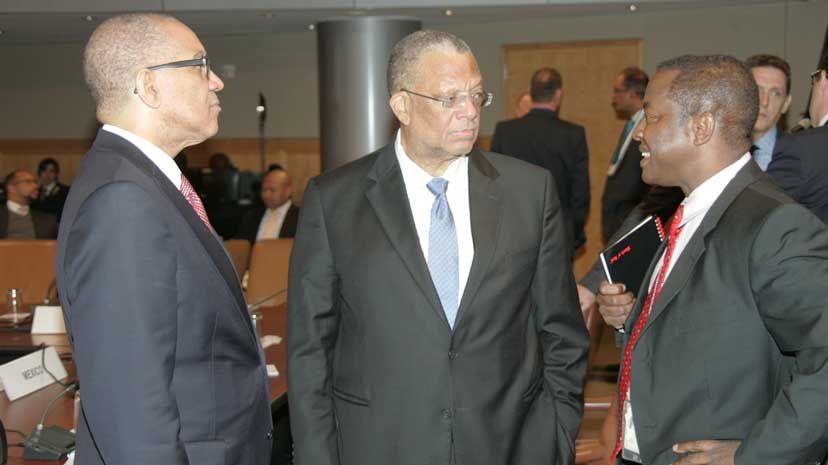WASHINGTON, DC, April 16, 2015 – Member countries of the Caribbean Community (CARICOM) concluded their inaugural meeting with members of the G20 Development Working Group (DWG) in Washington DC on Monday, and welcomed the implementation of DWG and other G20 commitments noting that this will strengthen the development outcomes from these initiatives.
In a communiqué following the meeting, Participants underscored the importance of focusing on access to energy for all within the G20 energy agenda, on promoting better integration of Caribbean countries into the global value chains and on establishing sustainable food systems along with reducing food losses and waste within the G20 agriculture track.
“We held an informative and wide-ranging discussion on how Caribbean countries can more directly benefit from the 2015 DWG policy priorities, each of which offers potential to help policy makers in Caribbean countries to develop practical solutions to some of their most acute development challenges.
There is scope for the DWG’s work in these areas to be made more widely accessible to Caribbean countries; and for Caribbean countries to participate more actively in the work of the DWG in each area,” the statement said.
“We discussed the opportunities and challenges arising from the development of the Caribbean Blue Economy.
Developing the Caribbean Blue Economy offers strong potential for the Caribbean region and its member countries to help broaden output, exports, employment and revenue and to benefit from the array of assets and opportunities offered by the Caribbean Sea.”
“Participants were also briefed on an innovative debt swap initiative which has been successfully launched and developed by the Seychelles. The mechanism will generate additional resources for sustainable marine use. We noted that this Blue Economy Debt for Adaptation Swap Initiative may be a useful example to explore for us in the Caribbean context.”
“We discussed the opportunities and challenges in strengthening domestic resource mobilization (DRM) in Caribbean countries.
Strengthening DRM can help reduce reliance on and volatility arising from external sources of finance; strengthen domestic ownership and accountability for development initiatives; help finance social and other public expenditure and infrastructure; and improve
countries’ policy space,” the communiqué continued.
They concluded by pointing out that the “Participants also discussed new and innovative sources of financing such as Diaspora Bonds and Blue Bonds, which have strong potential to scale up domestic resource mobilization flows.”
The G20 Development Working Group was established in 2010, and is responsible for implementing the G20 Development Agenda, which includes increase financing, for infrastructure investment in developing countries.
The G20 is a forum for the governments and central bank governors from 20 major economies. The members include 19 individual countries – Argentina, Australia, Brazil, Canada, China, France, Germany, India, Indonesia, Italy, Japan, Republic of Korea, Mexico, The Russian Federation, Saudi Arabia, South Africa, Turkey, United Kingdom, United States and the European Union.
Jamaica’s Finance Minister Dr. Peter Phillips who co-chaired the forum, led a delegation to the IMF and World Bank spring meetings, which provide a forum for discussion among governors of central banks, high-level authorities of member countries, representatives of multilateral financial institutions and developing agencies.

